NIH VIRTUAL WORKSHOP Community Voices: Forging the Path Forward for HIV Self-testing and Personalized Viral Load Monitoring
Participant Biographies
Day 1
Opening Remarks
Bill Kapogiannis, M.D., FIDSA, Acting Associate Director for AIDS Research and Acting Director, NIH Office of AIDS Research (OAR)
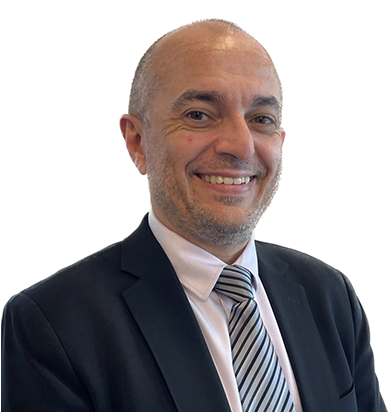
Dr. Bill G. Kapogiannis, an NIH leader in HIV research for nearly 18 years, is serving as the Acting NIH Associate Director of AIDS Research and Acting Director of OAR while a nationwide search for a new director is conducted. In his role, Dr. Kapogiannis leads OAR in coordinating the NIH HIV research agenda to end the HIV pandemic and improve the health of people with HIV.
Dr. Kapogiannis joined OAR from the Eunice Kennedy Shriver National Institute of Child Health and Human Development (NICHD), where he led several domestic and international research networks and consortia focused on infectious diseases and their complications such as HIV/AIDS, SARS-CoV-2, and COVID-19 affecting children, adolescents, and young adults. He is also the Executive Secretary and Editor of the Guidelines for the Prevention and Treatment of Opportunistic Infections in Children with and Exposed to HIV.
A board-certified infectious disease specialist in pediatrics and internal medicine, Dr. Kapogiannis earned his M.D. from the University of Illinois at Chicago College of Medicine, where he completed his residency in internal medicine/pediatrics. He completed a combined fellowship in infectious diseases in internal medicine and pediatrics at Emory University School of Medicine in Atlanta, Georgia.
Todd Merchak, Director, Office of Program Evaluation and Strategic Partnerships, National Institute of Biomedical Imaging and Bioengineering (NIBIB)
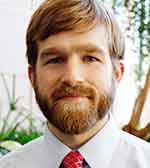
Mr. Todd Merchak is Director of the Office of Program Evaluation and Strategic Partnerships at the National Institute of Biomedical Imaging and Bioengineering (NIBIB). His primary responsibilities involve management of the NIBIB Small Business (SBIR/STTR) programs and support for the Institute’s translational research activities. Mr. Merchak leads the Institute's program evaluation efforts that help guide health science policy, scientific program management, and strategic planning. He also serves as a Science Officer for the Point-of-Care Technologies Research Network, as well as co-lead of the Rapid Acceleration of Diagnostics (RADx) program. Mr. Merchak received his B.S. degree in Biomedical Engineering from Yale University.
Bruce Richman, Ed.M., J.D., Founding Executive Director, Prevention Access Campaign (PAC)
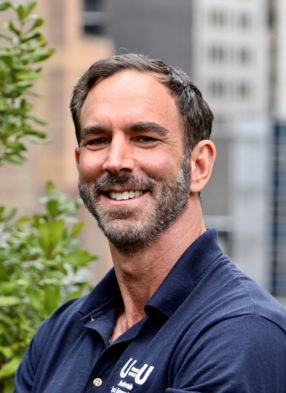
Bruce Richman is the founding executive director of Prevention Access Campaign, which mobilized scientists and activists to launch the Undetectable=Untransmittable (U=U) message and movement in 2016 to build a scientific consensus on the revolutionary but largely unknown fact: people living with HIV who are on treatment and have an undetectable viral load cannot transmit HIV to sexual partners.
Today, U=U has grown into a thriving global movement with over 1,000 official partners in 105 countries uniting to ensure access to vital information, treatment, and care to make U=U a reality for all people with HIV. U=U has been endorsed by the global medical and scientific community, including the WHO, PEPFAR, CDC, The Global Fund, NIH, and nearly all member states of the United Nations. U=U is transforming lives, reducing stigma, and improving HIV testing, treatment, and prevention outcomes worldwide.
Bruce has been featured extensively in national and international media, published in leading medical journals, and has presented on U=U in over 25 countries. Bruce has worked in philanthropy and public service for over 30 years. He received his Master of Education from Harvard University and his J.D. from Harvard Law School.
Florence Riako Anam, Co-Executive Director, Global Network of People Living with HIV

Florence Riako Anam is one of the two Co-Executive Directors at the Global Network of People Living with HIV (GNP+,). She is passionate about the health, rights, and well-being of people living with HIV, driving tireless advocacy work to empower individuals regardless of their background and ensure their access to comprehensive SRHR and HIV services. Her leadership is instrumental in fostering inclusivity and effecting positive change within the global HIV community. Florence has a master of Arts in communication studies from The University of Nairobi.
Community: Exploring User Needs and Preferences
Moderator: Bruce Richman, Ed.M., J.D., Executive Director, Prevention Access Campaign (PAC)
Jacqueline Linnes, Ph.D., Associate Professor of Biomedical Engineering, Purdue University
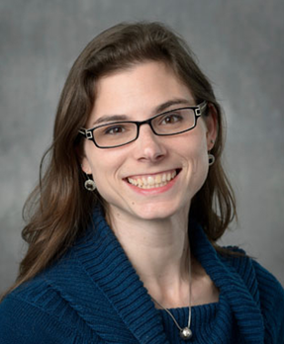
Dr. Jacqueline Linnes is the Marta E. Gross Associate Professor in the Weldon School of Biomedical Engineering at Purdue University and the Director of the College of Engineering Honors Program at Purdue University. Her inclusive interdisciplinary research lab develops point-of-care diagnostics and global health technologies for underserved populations in the U.S. and abroad. Dr. Linnes teaches undergraduate design and engineering health equity, graduate diagnostics and instrumentation, and international workshops on human-centered design. Her work emphasizes the translation of fundamental microfluidics and biological assays into point-of-care diagnostics via user- and equity-centered design principles. She works collaboratively with public health researchers, clinicians, and patient end-users to design health technologies for community-specific needs. Her experience in translational research includes co-founding and managing early-stage field-testing and user feedback for four startup companies. Dr. Linnes is a recipient of the NIH National Institute on Drug Abuse (NIDA) DP2 Avenir Award, Moore Inventor Fellow, and 2022 Kavli Frontiers of Science Fellow, and Executive Leadership in Academic Technology, Engineering and Science (ELATES) Fellow.
Natalia Maria Rodriguez, Ph.D., MPH, Assistant Professor of Public Health and Biomedical Engineering, Purdue University
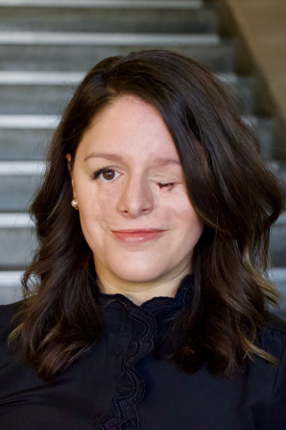
Dr. Natalia Rodriguez is an assistant professor of public health and biomedical engineering at Purdue University and associate member of the Indiana University Simon Comprehensive Cancer Center. Dr. Rodriguez earned B.S. degrees in Chemical Engineering and Biology from M.I.T., a Ph.D. in Biomedical Engineering from Boston University, and an MPH from the Harvard T.H. Chan School of Public Health, and completed postdoctoral training in the Medical Devices Unit of the World Health Organization. In 2019, she started the Health TechQuity Lab, an interdisciplinary research group focused on the design and implementation of rapid diagnostic tests to address health disparities. By meaningfully engaging underserved communities in translational science, her lab employs participatory methodologies to increase adoption of technological innovation, empower community health workforces, and improve health outcomes for vulnerable populations.
A. Toni Young, Community Education Group
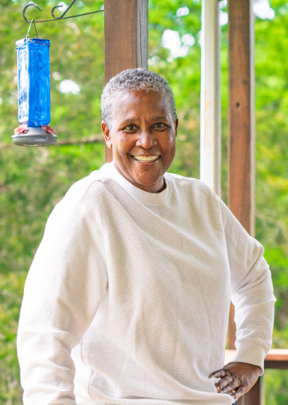
A. Toni Young has been the executive director of Community Education Group (CEG) for 30 years. She focuses on community mobilization, organization management, and collaborative partnerships for marginalized populations. She is extensively involved in HIV/AIDS advocacy and research, leading numerous studies and initiatives. In 2007, she led a study on HIV vulnerability in Black women with partners with incarceration history, crucial for targeted interventions. She has addressed structural HIV prevention factors in African American women with Exchange Coalition, advocating comprehensive approaches and aligning efforts with the strategy for evidence-based interventions grounded in best practices. Her current focus, and the mission of CEG, is to combat the syndemic of HIV, viral hepatitis, and substance use disorder in Appalachia and rural America.
Suyanna Linhales Barker, DrPH, La Clínica del Pueblo
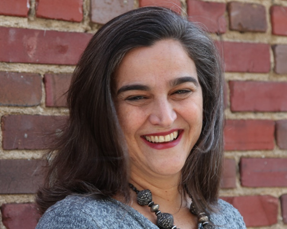
Dr. Suyanna Linhales Barker has over 30 years of experience researching and implementing community-level public health interventions that address the needs of low-income, underserved Latin Americans. A native of Brazil, Dr. Barker has a Doctorate in Public Health from the National School of Public Health in Brazil. Her work experience includes 10 years conducting research for the State University of Rio de Janeiro’s Center for Adolescent Health Studies and nine years consulting for various national and international organizations, including the Pan-American Health Organization and the International Labor Organization. For the last 13 years, Dr. Barker has provided strategic direction, budget and personnel management, and evaluation for the community-facing programs at La Clínica del Pueblo, a Community Health Center in Washington, DC. She has led the development of community-level strategies and intersectoral partnerships to address core social and structural determinants of health for La Clínica’s clientele.
Cedric Pulliam, Ph.D., Prevention Access Campaign
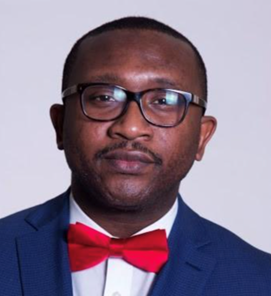
After serving nearly 13 years as a public servant in the U.S. federal government with a focus on global and public health, global human rights and gender equality, international development, and multilateral diplomacy,Dr. Cedric Pulliam has centered his federal career on access, community, diversity, equity, and inclusion. Most recently, Dr. Pulliam served at the U.S. Department of Health and Human Services (HHS) as the senior advisor for the chief medical officer for the Office of Infectious Disease and HIV/AIDS Policy. He also served at the Centers for Disease Control and Prevention (CDC) as a senior public health advisor and project officer in the Division of HIV Prevention. While at the U.S. Department of State, he served as the senior human rights and key populations advisor and the multilateral diplomacy officer for partnerships at the Office of the U.S. Global AIDS Coordinator and Health Diplomacy. His tenure at the U. S. Agency for International Development (USAID) included serving as a program specialist in the Office of HIV/AIDS and Office of Donor Engagement. Dr. Pulliam is a psychologist who practices within the healthcare systems and substance use fields. He founded CDP Consulting, LLC, which was started in 2014 to assist recent veterans in career and professional development and transitioned into a public health and health equity consultancy company in 2018.
Marc Wagner, RMA, A.M.T., AIDS Cure Research Collaborative
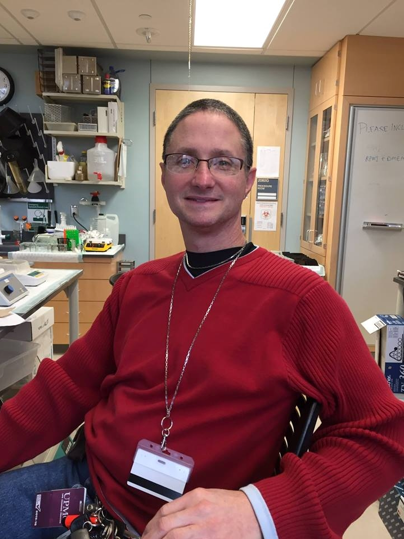
Marc, at age 61, is a long-term survivor of HIV. Marc serum-converted from negative to positive between his first visit in 1984 and his second visit in early 1985 with the Pitt Men’s Study which is now part of a 13-center national study collectively called the MWCCS. Marc’s accomplishments as a researcher span 1983–present, where he has worked in such fields as breast cancer, immuno-toxicology, fluorescence technology development, Alzheimer’s, and HIV. In 2012, Marc published a paper on a potential strategy to cure those living with HIV. He continues to pursue this work through a non-profit foundation he started entitled, “AIDS Cure Research Collaborative.” His foundation has received support from The Pittsburgh Foundation to do some early studies.
Marc serves on many community advisory boards (CABs) and was recently recognized by the MWCCS for his contributions on the leadership team of the National CAB. Marc was also recognized in 2021 in HIV Plus Magazine as one of the 25 Most Amazing People of the year who are also living with HIV. Billy Porter also made it to this list the same year.
Stacey Jay Cavaliere, Aunt Rita’s Foundation
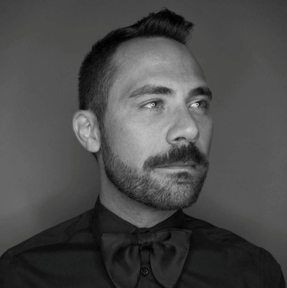
Stacey Jay Cavaliere is a dedicated and experienced leader in the nonprofit community in Arizona, with over 20 years of experience working in the social services sector. As a respected professional in the field, Stacey Jay has assumed various programmatic and executive leadership positions throughout his career. He is a tireless advocate for vulnerable populations and marginalized communities, including youth and young adults, justice-involved and houseless individuals, and those living with HIV. Throughout his career, he has developed and managed positive youth development and homelessness prevention programs, stewarded major, corporate, and sustaining donor initiatives, and has extensive experience executing record-breaking fundraising events. Stacey Jay has served on several boards including Phoenix Pride, the Young Nonprofit Professionals Network of Phoenix, and RipplePHX. He is also an inaugural class member of the Leading for Change Fellowship program and an AmeriCorps alum. Stacey Jay lives in his truth as an out and proud HIV positive individual, which serves well in his new role as executive director of Aunt Rita's Foundation, an HIV service community-based organization located in Phoenix, Arizona.
Larry Scott-Walker, THRIVE SS
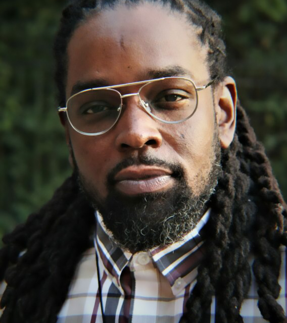
THRIVE Support Services Inc.’s Executive Director and Cofounder, Larry is a self-professed “Love poet trapped in an advocate’s body.” Scott-Walker is a Baltimore native, an author, artist, and advocate for equity and empowerment for Black same gender loving (SGL) men. Larry has worked in the public health and social services arena for 15 years. He found his passion for community while a student at Morehouse College where he co-founded the institution’s first, and only, gay straight alliance, “Safe Space.”
After college, Larry’s passion for community landed him working at various community-based and AIDS service organizations (ASOs) before cofounding Transforming HIV Resentments into Victories Everlasting Support Services (THRIVE SS Inc.) in 2015. THRIVE has cultivated the largest support network for Black gay men living with HIV in the country and has made tremendous strides in redefining support, linkage to care, and HIV stigma reduction. Larry often states, “There is no pill to rebuild will!” - meaning that no biomedical intervention can reverse the damage done by stigma and hate. Larry contends that “it is the community’s responsibility, duty, and honor to love, heal, and fortify itself.”
Cody Knight, MPH, CPH, Southern Plains Tribal Health Board
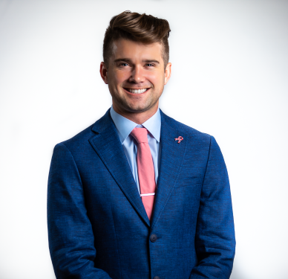
Joshua Cody Knight is a team member of the Oklahoma Area Tribal Epidemiology Center and Southern Plains Tribal Health Board. Cody supports and works with Tribal organizations to provide guidance and technical assistance surrounding HIV, hepatitis, and STI treatment and prevention policies, procedures, and other related inquiries as made by citizens, providers, and Tribal leaders. Cody leads a team of staff responsible for program development, implementation, and evaluation for clinical and community partners. He is leading the national expansion of the self-collection program indigi-I Want The Kit (indigi-IWTK), and the creature of the national HIV self-testing program; Native Test. These programs offer free confidential testing of HIV, hepatitis, syphilis, chlamydia, gonorrhea, and trichomoniasis. These programs have reached over 4,000 people with HIV self-test kits and are rapidly expanding STI self-collection. He earned a Master of Public Health degree from the University of Oklahoma Hudson School of Public Health and is certified in public health by the National Board of Public Health Examiners. He earned a Bachelor of Science in Biomedical Science from the University of Central Oklahoma and an Associate of Science from Northern Oklahoma College.
Anil Padavatan, Global Action for Trans Equality (GATE)
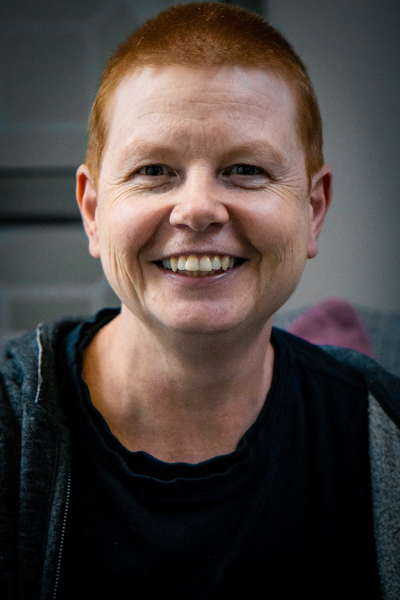
Anil is a non-binary trans masculine health and human rights activist from South Africa. Anil holds a Degree in Psychology and worked for many years in the fields of HIV, human rights and access to health care, with organizations including the AIDS Law Project, the SA HIV Clinicians Society, Gender Dynamix and GATE. He is also a co-author of the South African Gender Affirming Healthcare Guidelines.
Closing
Julio Aliberti, Ph.D., NIH Office of AIDS Research
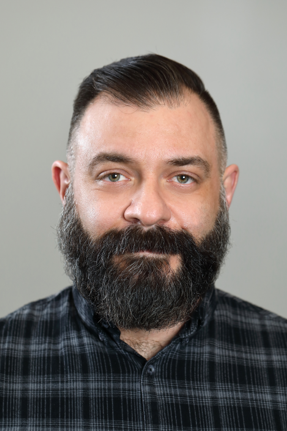
Dr Julio Aliberti received his M.Sc. and Ph.D. in Basic and Applied Immunology from the University of São Paulo, Brazil in the field of immunoparasitology and inflammation. He then joined the Laboratory of Parasitic Diseases at the NIH National Institute of Allergy and Infectious Diseases (NIAID) for his post-doctoral training in 1998 where he focused on induction and control of innate immunity to infection. He later joined the Department of Immunology at Duke University as an assistant professor. In 2006, he joined the Division of Molecular Immunology as an associate professor at Cincinnati Children’s Hospital. His research program was focused on innate immunity to infection and control of immune responses during infection, especially during tuberculosis and cerebral malaria. He joined the Immunology Review Branch –Scientific Review Program in 2016 and has served as a Scientific Review Officer for the Immunology Review Branch – Scientific Review Program at NIAID. In 2020, he served as a program officer for the Parasitology and International Program Branch Vaccine and Immunotherapeutics Discovery program for the Division of Microbiology and Infectious Diseases at NIAID. Dr Aliberti joined the NIH Office of AIDS Research (OAR) in 2022 and his portfolio includes coordination of the Innovation Program, HIV Vaccine, Cancer and impact of climate change in HIV care continuum.
Lis Caler, Ph.D., NIH Office of AIDS Research
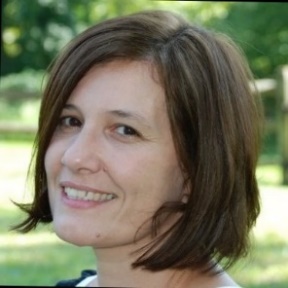
Dr. Lis Caler joined the NIH Office of AIDS Research (OAR) as a health scientist administrator in September 2019. Before joining OAR, Dr. Caler served as a program director in the NIH National Heart, Lung, and Blood Institute (NHLBI) Division of Lung Diseases where she led the Lung Response to Pulmonary Infections, Microbiome, AIDS and Tuberculosis area, focusing on cellular and molecular lung responses to HIV, tuberculosis (TB), and non-TB mycobacterial infection, as well as other viral, bacterial, and fungal pathogens that cause pneumonia. Currently, Dr. Caler leads the Basic and Translational Science Workstream within the NIH OAR Science Group, overseeing crosscutting areas of research including Vaccine Development, Microbicides and MPTs, HIV Associated Comorbidities, Coinfections, and Complications, and Research Toward HIV Cure. In addition, Dr. Caler leads the NH OAR Early Career Investigators in HIV Initiative.
David Chang, Ph.D., NIH Office of AIDS Research
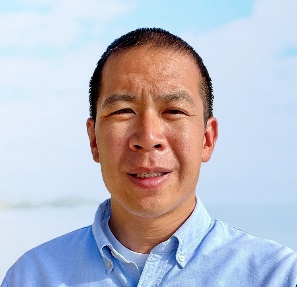
Dr. David Chang serves as a senior science advisor and health scientist administrator in the NIH Office of AIDS Research (OAR). He provides expertise in basic and translational science and supports multiple OAR Signature Programs: HIV and Aging, Advancing Technologies to Improve HIV Diagnosis and Care, and Early Career Investigators. He joined OAR after serving as a scientific review officer first at the NIH National Institute of Allergy and Infectious Diseases (NIAID), and more recently at the NIH Center for Scientific Review (CSR) where he managed the HIV Comorbidities and Clinical Studies (HCCS) Study Section. Dr. Chang received his Ph.D. from the Uniformed Services University of the Health Sciences and was a postdoctoral fellow and research scientist in the U.S. Military HIV Research Program, Walter Reed Army Institute of Research, Laboratory of Molecular Virology and Pathogenesis.
Leslie Marshall, Ph.D., NIH Office of AIDS Research
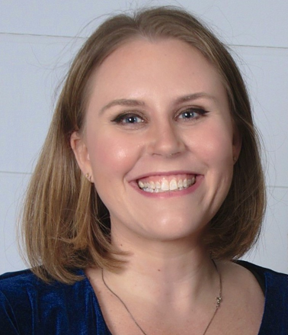
Dr. Leslie Marshall, Ph.D. is a senior science advisor in the NIH Office of AIDS Research (OAR) overseeing a portfolio including women’s health, neuroHIV, microbicides, and HIV nonvaccine biomedical prevention (nBP). Dr. Marshall also serves as the acting lead for the Clinical Workstream within the OAR Science Team. She received her undergraduate degree in biology from Susquehanna University and her Ph.D. in microbiology and immunology from Wake Forest University. Prior to pursuing graduate studies, she worked at Merck Research Laboratories developing analytical methods for their vaccine program. Following a research fellowship at the NIH National Institute of Neurological Disorders and Stroke (NINDS) studying mechanisms of JC virus pathogenesis and latency, she joined the Division of AIDS at the NIH National Institute of Allergy and Infectious Diseases (NIAID) where she served as a level III Contracting Officer’s Representative administering contracts focused on preclinical support for HIV nBP product development. In this role, she served as a liaison to academic and industry partners developing strategic approaches to meet regulatory requirements for the advancement of topical microbicides and nBP products to clinical testing.
Day 2
Defining the Landscape and How Technology Can Be Made Responsive to Community Needs
Moderator: Shawn Mulvaney, Ph.D., Health Science Administrator, National Institute of Biomedical Imaging and Bioengineering
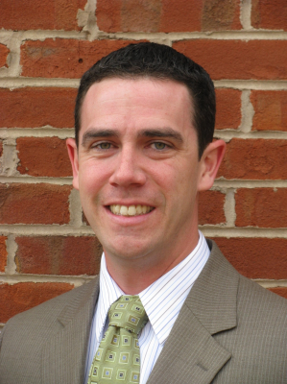
Dr. Shawn P. Mulvaney serves as a health scientist administrator for the NIH National Institute of Biomedical Imaging and Bioengineering (NIBIB). Dr. Mulvaney is the program officer for the Bioanalytical Sensors portfolio and within the Rapid Acceleration of Diagnostics (RADx) program. For RADx, Dr. Mulvaney works with dozens of companies to develop and commercialize antigen and genomic tests for the detection of SARS-CoV-2 and other respiratory viruses, and his portfolio includes over-the-counter and point-of-care technologies. Additionally, Dr. Mulvaney oversees a genotyping program for the tracking and reporting of SARS-CoV-2 variants circulating in wastewater samples. Prior to joining NIBIB, Dr. Mulvaney spent more than two decades at the U.S. Naval Research Laboratory working on chemical and biological sensing, biotic/abiotic interfaces, analytical, surface and materials science, and device prototyping. In addition to building biosensor platforms for first responders and in-the-field use by warfighters, Dr. Mulvaney’s research team performed pre-acquisition, independent verification, and validation of diagnostic technologies capable of detecting tropical diseases for the Department of Defense. Dr. Mulvaney earned his B.S. in Chemistry from the College of William and Mary and his Ph.D. in Chemistry from The Pennsylvania State University.
Robert Murphy, M.D., Northwestern University, Feinberg School of Medicine
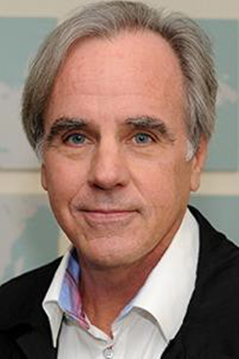
Robert Murphy is Professor of Medicine and Biomedical Engineering at Northwestern University where he is Executive Director, Havey Institute for Global Health and John P. Phair Professor of Infectious Diseases. Dr. Murphy’s primary research and clinical interest is the diagnosis and treatment of viral infections. His original research focused on development of new antiviral drugs and vaccines for HIV and viral hepatitis. He leads the NIH-supported cooperative agreement known as C-THAN, part of the NIBIB Point-of-Care Technology Research Network developing devices and assays that can be used to prevent, diagnose, treat, and monitor HIV-associated conditions in Africa. During the Covid-19 pandemic, this project pivoted its research focus to developing innovative diagnostic assays and devices for SARS-CoV-2 in the program referred to as RADx - the Rapid Acceleration of Diagnostics for Coronavirus-19; he sits on the RADx Steering Panel, the RADx III High Performance Panel, the RADx HVL Panel and the Clinical Review Board. Dr. Murphy has published over 360 scientific papers and launched the first Biomedical Engineering for Africa textbook. He is Senior Editor-Virology for the British Society for Antimicrobial Chemotherapy Journal of Antimicrobial Chemotherapy and is faculty director for the Northwestern Master of Science in Global Health.
Yukari Manabe, M.D., FIDSA, FRCP, Professor of Medicine, Johns Hopkins School of Medicine; Director, Johns Hopkins Center for Innovative Diagnostics for Infectious Diseases
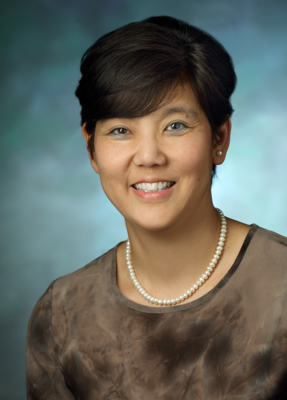
Dr. Yukari Manabe is an HIV clinician researcher in the Department of Medicine, Division of Infectious Diseases within the Johns Hopkins University School of Medicine and director of the Center for Innovative Diagnostics for Infectious Diseases. She also holds joint appointments in the Johns Hopkins Bloomberg School of Public Health Departments of International Health and Molecular Microbiology and Immunology and is also the associate director of Global Health Research and Innovation within the Johns Hopkins Center for Global Health. Her research has focused on infectious disease diagnostics for STI’s, HIV, tuberculosis, and respiratory viruses (COVID-19, influenza) and their impact on patient-centered outcomes. She is dedicated to accelerating infectious disease diagnostic development, innovation, and access to increase diagnostic certainty and targeted treatment to improve global health.
Dr. Manabe is the author of more than 270 peer-reviewed publications. She obtained her undergraduate degree from Yale University and her M.D. from Columbia University College of Physicians and Surgeons. She joined the Johns Hopkins School of Medicine faculty in 1999 after completing her residency in internal medicine and fellowship in infectious diseases at Johns Hopkins Hospital. From 2007 to 2012, she was seconded to the Infectious Diseases Institute where she was the head of research and still holds an honorary appointment at Makerere University College of Health Sciences.
Paul Yager, Ph.D., University of Washington
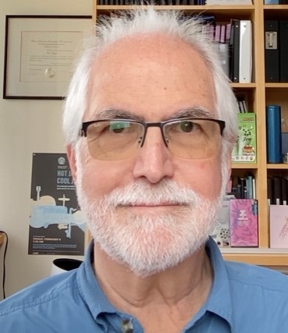
Dr. Paul Yager is a professor in the Department of Bioengineering at the University of Washington (UW), and holds adjunct positions in chemistry, global health and oral health sciences. With backgrounds in biochemistry and chemistry, Dr. Yager’s UW lab has been developing technology for measuring biomarkers and pathogens in biological fluids since 1987; support has come from the National Science Foundation (NSF), National Institutes of Health (NIH), Defense Advanced Research Projects Agency (DARPA), the Bill & Melinda Gates Foundation, and private donors. In the 1990s, his lab was an early entrant to the field of microfluidics, and developed many novel approaches to sample measurement that relied on the unique properties of low-Reynolds-number conditions. In 2008, the lab began exploiting the potential of porous materials (e.g., paper), which can drive movement of fluids without pumps; by working with complex 2- and 3-dimensional shapes, multi-step sophisticated and sensitive analytical methods could be supported. Since 2011 the group has been working on home-use paper-based devices based on isothermal nucleic amplification to support ultrasensitive detection of pathogens. An integral feature of these devices is a minimum of user steps, and real-time imaging detection of amplification using cell phones. In addition to home-based testing for HIV virus, current projects include ultrasensitive detection of protein and small-molecule biomarkers on paper for home use.
David Cavanaugh, DeciBio
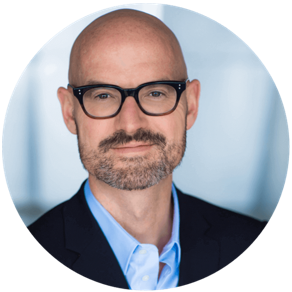
David Cavanaugh, a cofounder of DeciBio Consulting, has worked for over 20 years at the intersection of life sciences and business. David's expertise is centered on precision medicine, clinical diagnostics, and the emerging field of psychedelic medicines. He is notably recognized for his contributions in the HIV and point-of-care diagnostics sectors, collaborating with innovative companies. Additionally, he serves on the investment committee at the Broad Oak – DeciBio BioTools Venture Fund, directing strategic investments toward pre-commercial ventures driving novel therapeutics. His commitment to precision medicine is further underscored by his role on the Board of Directors for Dexter Networks Inc, a prominent expert network.
Before cofounding DeciBio, David excelled at L.E.K. Consulting, skillfully managing multiple concurrent life science engagements. His earlier career as a computational biologist at industry leaders like Genentech and GlaxoSmithKline solidified his research foundation. He holds an MBA with a focused emphasis on international strategy, biotechnology, and healthcare from the Kellogg School of Management at Northwestern University, complementing his Bachelor of Science in Chemical Engineering from the University of Virginia.
Sally McFall, Ph.D., Northwestern University
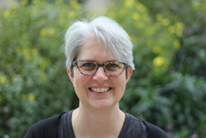
Dr. Sally McFall is the MPI of Center for Innovation in Point-of-Care Technology for HIV/AIDS and Emerging Infectious Disease at Northwestern (C-THAN) and Co-Director of the Center for Innovation in Global Health Technologies (CIGHT) in the Department of Biomedical Engineering at the McCormick School of Engineering & Applied Sciences. Dr. McFall has extensive experience in leading point-of-care technology development projects for infectious diseases such as HIV, tuberculosis, and hepatitis designed specifically for low - and middle-income countries. She cofounded a start-up company, Minute Molecular Diagnostics (recently merged with Nuclein LLC) to market point-of-care testing in high resource settings with the goal of developing applications for low resource settings as funding allows.
Kevin Delaney, Ph.D., MPH, Centers for Disease Control and Prevention
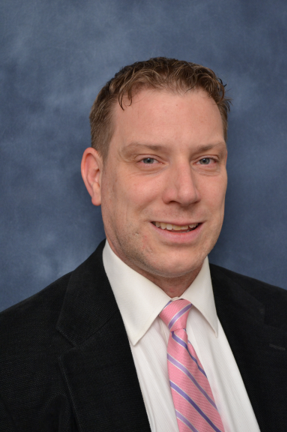
Dr. Kevin Delaney has over 20 years of experience working at the Centers for Disease Control and Prevention (CDC), almost all of it working to increase HIV testing in the U.S. His work has focused on improving the quality of testing for both laboratory-based and point-of-care HIV tests. He has authored over 50 peer-reviewed publications related to HIV testing, sensitivity of HIV tests shortly after infection, and evaluations of ways to improve the uptake of testing. He also seeks to improve the links between an HIV test and access to other HIV care and prevention services. He is or has been the CDC principal investigator for a variety of different projects that sought to develop and evaluate new HIV tests and ensure they work as expected in settings of likely clinical, point-of-care, and home use. He currently serves as one of the CDC Division of HIV Prevention’s subject matter experts for HIV testing and is co-lead of Ending the HIV Epidemic in the U.S. initiative DIANGOSE pillar activities at CDC, and leads the group that has been offering HIV self-testing through the National Together TakeMeHome HIV self-test distribution program.
Eric Vogel, Ph.D., Georgia Institute of Technology
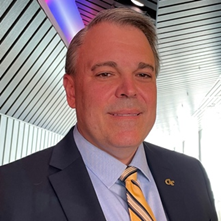
Dr. Eric Vogel is currently Hightower Professor of Materials Science and Engineering and executive director of the Institute for Materials at the Georgia Institute of Technology. He is also currently a principal investigator on the NIH-funded Atlanta Center for Microsystem Engineered Point of Care Technologies (ACME POCT). His research is broad-based and interdisciplinary, focusing on the synthesis, structure, properties, and applications of a variety of electronic and nanoscale materials and devices. In the area of biosensors, his group focuses on emerging technologies such as potentiometric and electrochemical impedance biosensing for portable, label-free, point-of-care devices. Prior to joining Georgia Tech, he was associate professor of materials science and engineering and electrical engineering at the University of Texas at Dallas. Prior to joining that, he was leader of the CMOS and Novel Devices Group and founded the Nanofab at the National Institute of Standards and Technology (NIST). He received the Ph.D. degree in 1998 in Electrical Engineering.
Regulatory Considerations for HIV POC and Self-Monitoring
Moderator: Sai Majji, Ph.D., Health Science Administrator, The Eunice Kennedy Shriver National Institute of Child Health and Human Development
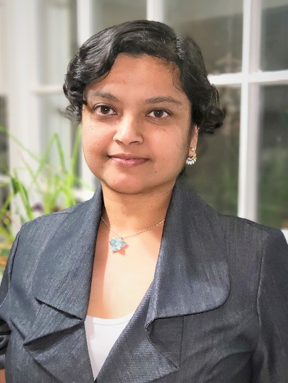
Dr. Sai Majji is a health scientist administrator in the Pediatric Infectious Disease Branch of the Eunice Kennedy Shriver National Institute of Child Health and Human Development (NICHD). Her research portfolio includes pediatric immune system ontogeny and development, immune-prophylactics, therapeutics and vaccines in HIV, tuberculosis, and malaria infections in infants, children, and maternal individuals; regulatory affairs focusing on clinical trial safety, monitoring, and pediatric COVID and multisystem inflammatory syndrome (MIS-C).
Dr. Majji was with the Department of Defense (DOD) for over 10 years working as an immunologist on malaria vaccine development, monoclonal antibodies against malaria and HIV, adaptive immunity against malaria, and development of candidate vaccines and humanized models for malaria, HIV, and dengue virus.
She was also at the U.S. Army Medical Research and Development Command (USAMRDC-DOD) as a senior regulatory scientist in advanced product development teams for the active-duty military. At AMRDC, Dr. Majji was the DOD-FDA liaison for military health products such as vaccine candidates, monoclonal antibodies against HIV, HIV vaccine candidates and emergency therapy for severe malaria.
Julia Tait Lathrop, Ph.D., U.S. Food and Drug Administration
Dr. Julia Tait Lathrop is associate deputy director in the Division of Emerging and Transfusion-Transmitted Diseases (DETTD), Office of Blood Research and Review (OBRR) in the Center for Biologics Evaluation and Review at the U.S. Food and Drug Administration (FDA). DETTD has responsibility for regulating retroviral diagnostics, including all HIV devices, as well as devices for screening blood donors for infectious disease. In her current position she is responsible for developing and implementing regulatory and review policies for the Division. She joined FDA in 2012 and held roles in the Center for Devices and Radiological Health (CDRH), Office of In Vitro Diagnostics and Radiological Health (OIR, now OHT7) as a scientific reviewer and as acting chief of the Immunology and Flow Cytometry Branch in the Division of Immunology and Hematology Devices until 2016, when she joined DETTD. She holds a Ph.D. in Biology from the University of Virginia.
Robert Luo, M.D., M.P.H., Diagnostics Advisor, World Health Organization
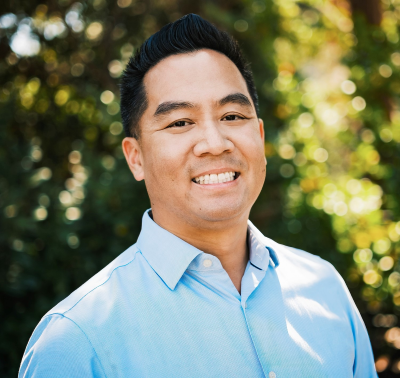
Dr. Robert Luo is a board-certified pathologist and diagnostics advisor for the World Health Organization (WHO) Department of Global HIV, Hepatitis, and Sexually Transmitted Infections Programmes. His work focuses on laboratory and point-of-care diagnostics, particularly in resource-limited settings worldwide. He has contributed to international guidelines for diagnostic testing for infectious diseases and provides technical assistance to country and regional partners. Prior to WHO, he worked for diagnostics manufacturers and the U.S. Centers for Disease Control and Prevention and in academia. Dr. Luo received his B.A. from Harvard University and his M.D. and M.P.H. from Johns Hopkins University. He completed his residency training in pathology at Stanford University.
Workshop Summary and Closing Remarks
Public Health Perspective: Harold J. Phillips, MRP, Director, White House Office of National AIDS Policy
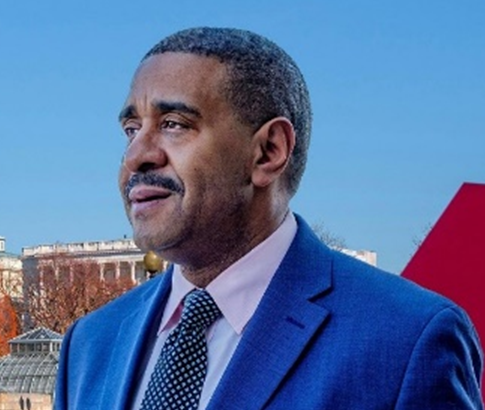
Harold Phillips serves as the director of the White House Office of National AIDS Policy. He previously served as the senior HIV advisor and chief operating officer of the Ending the HIV Epidemic (EHE) initiative in the Office of Infectious Disease and HIV/AIDS Policy (OIDP) at the U.S. Department of Health and Human Services (HHS). His work in the field of HIV/AIDS spans more than 20 years and includes past positions in both the federal government and in the community. Prior to joining OIDP, Harold served as the director of the Office of HIV/AIDS Training and Capacity Development at the Health Resources and Services Administration (HRSA)’s HIV/AIDS Bureau, where he had previously served as deputy director of the Ryan White HIV/AIDS Program (RWHAP) Part B and AIDS Drug Assistance Programs (ADAP). In addition to working with RWHAP recipients, planning councils, providers, and patients, he previously worked at NMAC (formerly the National Minority AIDS Council). Harold also served on the CDC/HRSA Advisory Committee on HIV, Viral Hepatitis and STD Prevention and Treatment (CHAC) from 2003 to 2010. He has a Master of Urban and Regional Planning degree from the University of North Carolina at Chapel Hill and an undergraduate degree from Kalamazoo College in Michigan.
Julio Aliberti, Ph.D., NIH OAR
Elisabet Caler, Ph.D., NIH OAR
David Chang, Ph.D., NIH OAR
Leslie Marshall, Ph.D., NIH OAR
Workshop Coordinator
Mohini Bhakta, M.P.H., NIH OAR
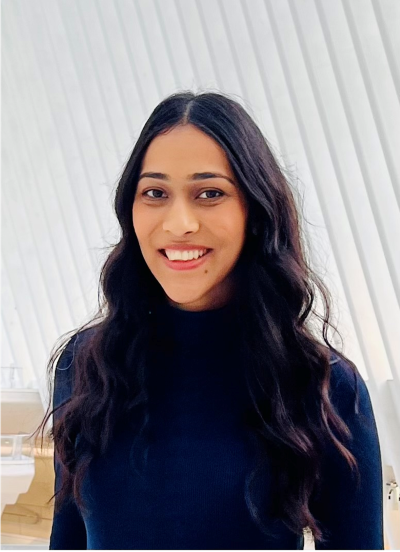
Mohini Bhakta joined the Office of AIDS Research (OAR) as a contractor in July 2022 as a Program Support Assistant for the Analytics and Evaluation Team. Currently, she plays a vital role in advancing OAR initiatives by providing essential logistical support for HIV/AIDS workshops and operations. She improves office-wide analytics and evaluation strategies and enhances project efficiency. Before joining OAR, Mohini was a Communication Specialist for the CDC Foundation where her work focused on vaccine and COVID-19 related prevention strategies. She is a Certified Health Education Specialist (CHES) and a Certified COVID-19 contact tracer. She earned her BA in Global Health from Arizona State University and completed her MPH in Health Promotion and Disease Prevention from the Florida International University. During her undergraduate work, she studied in Peru and worked with the government of Peru and local communities on parasite prevention and human papillomavirus education campaigns.
This page last reviewed on April 28, 2025

